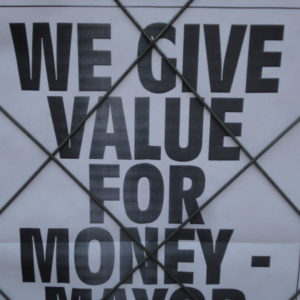I used the word “Established” in 2004 in the title of my first (and only) book The New Science of Strategy Execution: How The Established Firm Becomes a Fast, Sleek Wealth Creator. I had an idea then about what Established meant but have refined my thinking on this recently. Some writers have referred to them as “ongoing” firms, but we need a more useful view of what “established” means in this context.
Notes on Growing Wealth in the For-profit Firm 2019
January 2019 will mark the eighth year of writing articles about what increases firm valuation for the for-profit firm. We have an exciting year plan and I hope you will continue to follow this series of articles and comment on them. The comments are very appreciated and help me learn. Best regards, Bill and the team at Bill Bigler Associates.

Why Do Many Mid-sized Firms Still Not Embrace Competitive Strategy and Strategic Planning?
In 2019 I think more mid-sized firms are shunning competitive strategy and strategic planning than in 1970, around the time of the Arab Oil Embargo when competitive strategy and strategic planning were king.

Being Or Becoming Polymorphous Kaleidoscopic: Recent Criticisms of the Chief Strategy Officer Position
Polymorphous Kaleidoscopic in this context means a “many-sided person who is made up of a complex mix of elements”. Do we really need such a person in business? I think so. Recently there have been more than a few articles criticizing the relatively new position and role of the Chief Strategy Officer (CSO). This article will explore this reality and what in my view is required for this role to add value to the management team and the organization.

Competing to Be the Best or Competing Via Being Unique: Which Is “Best”?
The for-profit firm should indeed compete to be unique and not the best. As usual, I think Dr. Porter is correct, even though I was at first skeptical. I poured over all of my prior strategy engagements (about seventy-five that lasted six or more months) plus looked really closely at my most recent engagements while in progress. Sure enough, I think the desire and energy to compete to be the best have more pitfalls than good things.

Are We Really In The “New Normal”?: Some Ideas On the Context for Competitive Strategy
Pundits tell us we are in the “new normal”. Not a new normal but the new normal. And they write in tones that suggest the amount of change that is on us is unprecedented in human history. This article will explore this premise for ideas that hopefully can help with the context for making competitive strategy for for-profit firms and the growth of the market value of those firms in today’s times in 2019.

Competitive Strategy Versus Operations Excellence: Is There Really A Difference In Today’s World?
In today’s world of lightning-fast change and disruption, plus only being able to secure temporary competitive advantages, as we are told, can’t OE tackle all of this? I don’t believe OE can subsume the work of good strategy, but this recent engagement has forced me to rethink and recommit to the value proposition of completing competitive strategy alongside OE work.

Extracting Versus Creating Value: Confusion Abounds
OK so here is another of my articles with Figures and one formula. Please don’t let this deter you from considering the message here. I think this article, while a little longer than most, is worth your attention. It picks up where my last article “The Age of Agile – The New Management Paradigm and Nasty Old Shareholder Value Strikes Again” ends.

The Age of Agile – The New Management Paradigm and Nasty Old Shareholder Value Strikes Again
The recent book The Age of Agile by Stephen Denning, 2018) is the presenter of the (not a) new management paradigm. Whether it will be replaced with another the new management paradigm will remain to be seen. And while there are many frustrating “red herring” arguments throughout the book, mostly against the activist hedge fund view of shareholder value, top management teams extracting value instead of creating value and the toxicity of top-down command and control bureaucracies, I think this is a very good and an important book.

What Is Value?
This is a slightly updated article from 2016. I think it is a good one and worth your time to read. The Diamond-Water Paradox is posed early on to sophomore students in an economics course. The question is: why is water, which is required to maintain human life, of much lower value to people than diamonds are? Why are we usually willing to pay very little money for one glass of water and a great deal of money for one diamond, which is not required to maintain human life?

